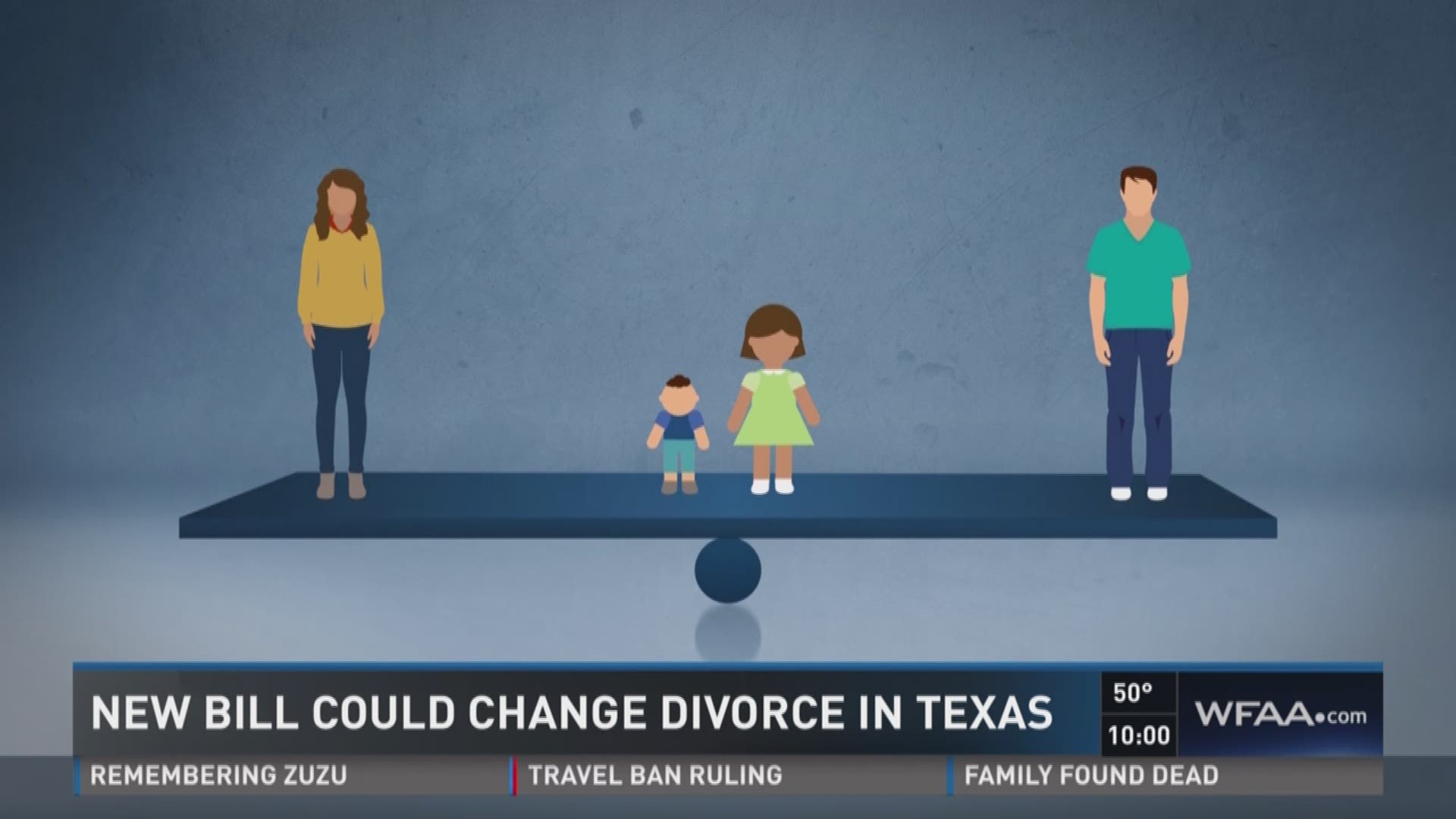DALLAS – A renewed effort is underway by fathers in this state to get a law passed allowing equal custody for both parents during a divorce.
"When you go through a divorce you split everything down the middle, why is it when you have a child you can split custody and time with that child,” asked Noel Geren, 37.
He and his infant daughter are inseparable but Geren said he does not get to see his 10-year-old son from his first marriage as often as he'd like.
"I've been seeking more time with my son for the last four years and I've spent upwards of $80,000," he explained.
Geren is now among the vocal supporters of Texas House Bill 453, authored by State Rep. James White, R-Woodville, which would give mothers and fathers equal custody during a divorce.
"If this bill passes you're going in there at an equal advantage with the other person," added Geren. "It doesn't touch on any child support. It doesn't touch on anything that would be detrimental to the child. It's still left in the courts hands on what they want to do."
If parents reach a custody agreement before arriving in a family court, judges simply approve it. But more often, mothers win custody which leaves fathers only with visitation. House Bill 453 could change the starting point in family courts giving both parents equal custody from the beginning.
At least five states already have similar laws. But since custody cases are often messy and each one is unique, a former family law judge says the legislature should not mandate what to do with children.
"This [legislation] just indicates that people believe they are not being heard by the court," said Marilea Lewis, attorney at Orsinger Nelson Downing & Anderson.
She spent 24 years on the bench in Dallas County as an associate judge and a district court judge.
"The perception may be that mothers are benefitted by the system but I don’t really believe that to be the case,” added Lewis.
She said if the legislature limits the discretion of judges, they'll end up doing nothing more than rubberstamp custody cases coming before them.
"[House Bill 453] mandates that the court must – because it says the court "shall" – enter a possession schedule that divides the time equally. It doesn't give the court any direction as to what that means. What does that look like? Does that look like week on, week off? Two weeks on, two weeks off,” she asked.
A similar bill died during the 2015 legislation session.
But for Geren, it still boils down to fairness and a fight he plans to carry to the capitol next month joining other fathers for a rally there on Monday, March 13.

